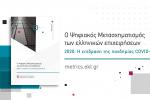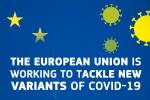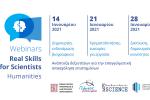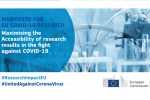
A new report with guidelines for educators, employers and recruiters was released by the European Commission on 13 July 2020 in order to ensure that Europeans have the digital skills needed to prosper in the labour market following the pandemic. The "DigComp at Work" report and the implementation guidelines issued by the Joint Research Centre (JRC) include practical measures, key actions, advice and online resources to exploit the EU's digital competence framework (DigComp) along the ‘employment path’- from education to sustainable employment and entrepreneurship.
The new conditions resulting from confinement and social distancing have shown how invaluable and necessary digital skills are to interconnect with work, education, family and friends, which would not be feasible without digital space and new technologies.
The Commissioner for Innovation, Research, Culture, Education and Youth, Mariya Gabrielle, said: "In recent months, social distancing transformed the way we interconnect, explore and innovate at work. We need to equip citizens with appropriate digital skills to keep working like this. "
DigComp and European Skills Agenda
Digital skills are essential for life and work and are an important link in employability and career. Support for managing the digital transition lies at the heart of the European Skills Agenda, adopted by the European Commission on the 1st of July 2020.
Launched in 2013, DigComp is a tool to improve citizens’ digital skills. So far, at least 380,000 DigComp based training courses and 440,000 DigComp based certificates have been provided in Europe. DigComp is continuously evolving to take account of competence needs brought about by new technological developments like artificial intelligence, robotisation, big data and “datification”. The JRC aims to update and release DigComp 2.2, incorporating these developments, in the first quarter of 2021.
The European Commission will promote this work in the autumn, presenting the updated Digital Education Action Plan and a Communication on the construction of the European Rducation Area. DigComp will support the efforts of countries, businesses and social partners to support the development of digital skills.
Further information is available from the Joint Research Centre.
ΕΚΤ and Digital Skills
The National Documentation Centre (EKT), a supervisory body of the Ministry of Digital Governance, plays an active role in the "National Coalition for Digital Skills and Jobs". As of May 2020, responding to the new conditions brought about by the COVID-19 pandemic, EKT launched a series of Internet seminars on digital skills. The aim was to enhance dialogue on the development and practice of digital skills by co-operating with top national and European actors to pool ideas and proposals to improve the response of society and the state to the digital challenge. The webinars, 'How digitally competent are we as learners, teachers and educational organisations? Τheory and practice.' and 'Discover the digital skills of your school with a ... SELFIE ', so far presented by EKT, have attracted the attention of 4,000 teachers, heads of schools, pupils, students, employees in public institutions, professionals, members of Universities and employees, which highlights the great interest in this area.
















